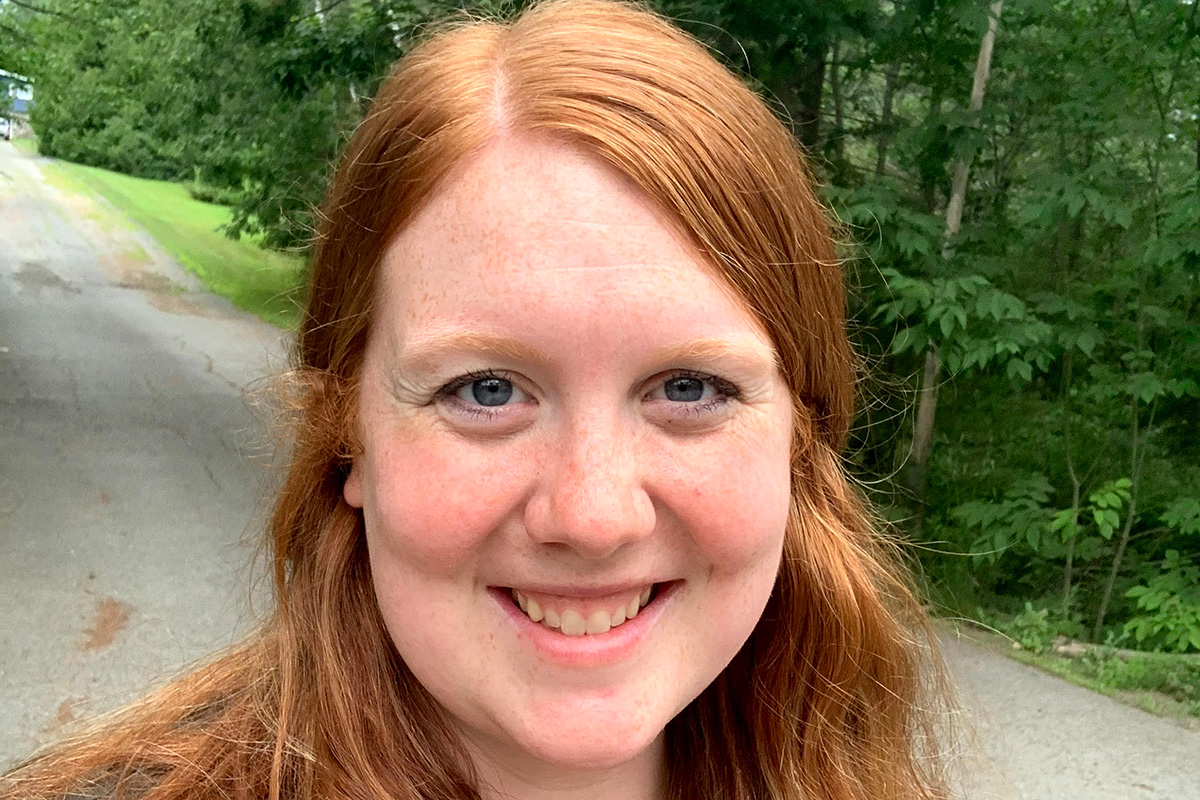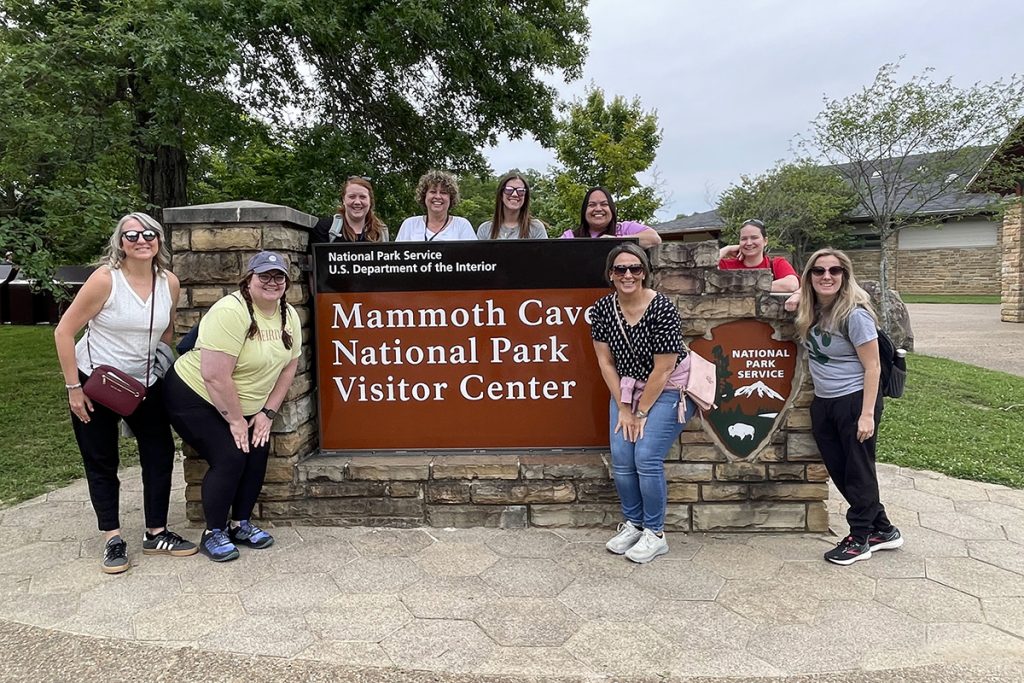
Samantha Poll: UMaine education grad receives national recognition for STEM teaching
Samantha Poll grew up in Winterport, the same tight-knit, central Maine town where she’s now a teacher. That gives her a unique perspective on the impact educators can have on their students’ lives.
“I knew that I wanted to teach in this area,” says Poll, an eighth grade science teacher at Samuel L. Wagner Middle School. “I know the families and I know how it feels to be sitting at one of those desks. It’s very important to me to show kids that they can stick around, and that there are opportunities here locally.”
In college, Poll transferred from the University of Maine at Farmington to the flagship University of Maine in part to be closer to where she wanted to end up teaching (Winterport is about a 40-minute drive from the UMaine campus in Orono).
She originally wanted to be a French teacher, so when she graduated from the College of Education and Human Development in 2015 she earned degrees in both elementary and secondary education, along with a French minor. However, during her time at UMaine she also fell in love with science teaching and discovered the Maine Center for Research in STEM Education (RiSE Center) and its Maine STEM Partnership program, a statewide initiative promoting evidence-based science, technology, engineering and mathematics learning experiences for students from pre-kindergarten through high school and beyond.
“I became a teaching partner at the RiSE Center when I was still a student,” Poll says. “Most of the other teaching partners were experienced educators, but they embraced me and I started working with the curriculum that I still use in my classroom. The RiSE Center is the reason I’m the teacher I am today.”
For Poll, as a Mainer and a science educator, some of the most exciting opportunities for her students to learn involve renewable energy. She teaches lessons where they build their own small-scale wind energy projects, engaging their curiosity, passion, knowledge and skills around all aspects of STEM.

“Careers in STEM were talked about as being the future when I was in my students’ shoes, but with all of the jobs in renewables now, they’re here,” Poll says.
Recently, she was one of nine teachers selected to participate in the National STEM Scholars Program, a professional development opportunity providing advanced training, network building and support for a “big idea” classroom project. The program is specifically designed for middle school science teachers and comes with a $2,000 award to support the applicants’ proposals. Poll’s “big idea” involved expanding her renewable energy curriculum so it includes small-scale solar and hydroelectric in addition to wind.
“I’ve always wanted to do something with solar panels, but it’s just been too expensive. Now I have the funding for all the materials and lessons to be able to do it,” she says.
In late May, she traveled to Bowling Green, Kentucky for an intensive, weeklong professional development class hosted by the Gatton Academy of Mathematics and Science at Western Kentucky University. The academy runs the STEM Scholars Program in partnership with the National Stem Cell Foundation. When she applied for the program, Poll says she just proposed the solar project. But during her week at WKU, Gatton Academy staff encouraged her to incorporate hydro as well. She also got to meet and learn alongside the eight other middle school teachers who were selected for the program from a national pool of applicants.
“It’s been such an amazing experience getting to know them and learning about their projects. There’s nothing quite like getting a group of like-minded teachers together,” Poll says, adding that they keep in touch with group emails and texts.
Next March, Poll and her fellow STEM scholars will meet again in Philadelphia for the National Conference on Science Education hosted by the National Science Teaching Association. There they will have an opportunity to present about their classroom projects.
UMaine continues to play an important role in Poll’s life and career. She’s still involved with the Maine STEM Partnership at the RiSE Center, sharing resources and knowledge with other science educators throughout the state. And since earning her bachelor’s degree, she has returned to UMaine to complete both a Master of Education and an Education Specialist (Ed.S.) degree in curriculum, assessment and instruction through the College of Education and Human Development.
“When I talk to my students about opportunities in this area, UMaine is a big one,” she says. “There’s amazing things happening and a great school right up the road.”
Contact: Casey Kelly, casey.kelly@maine.edu
